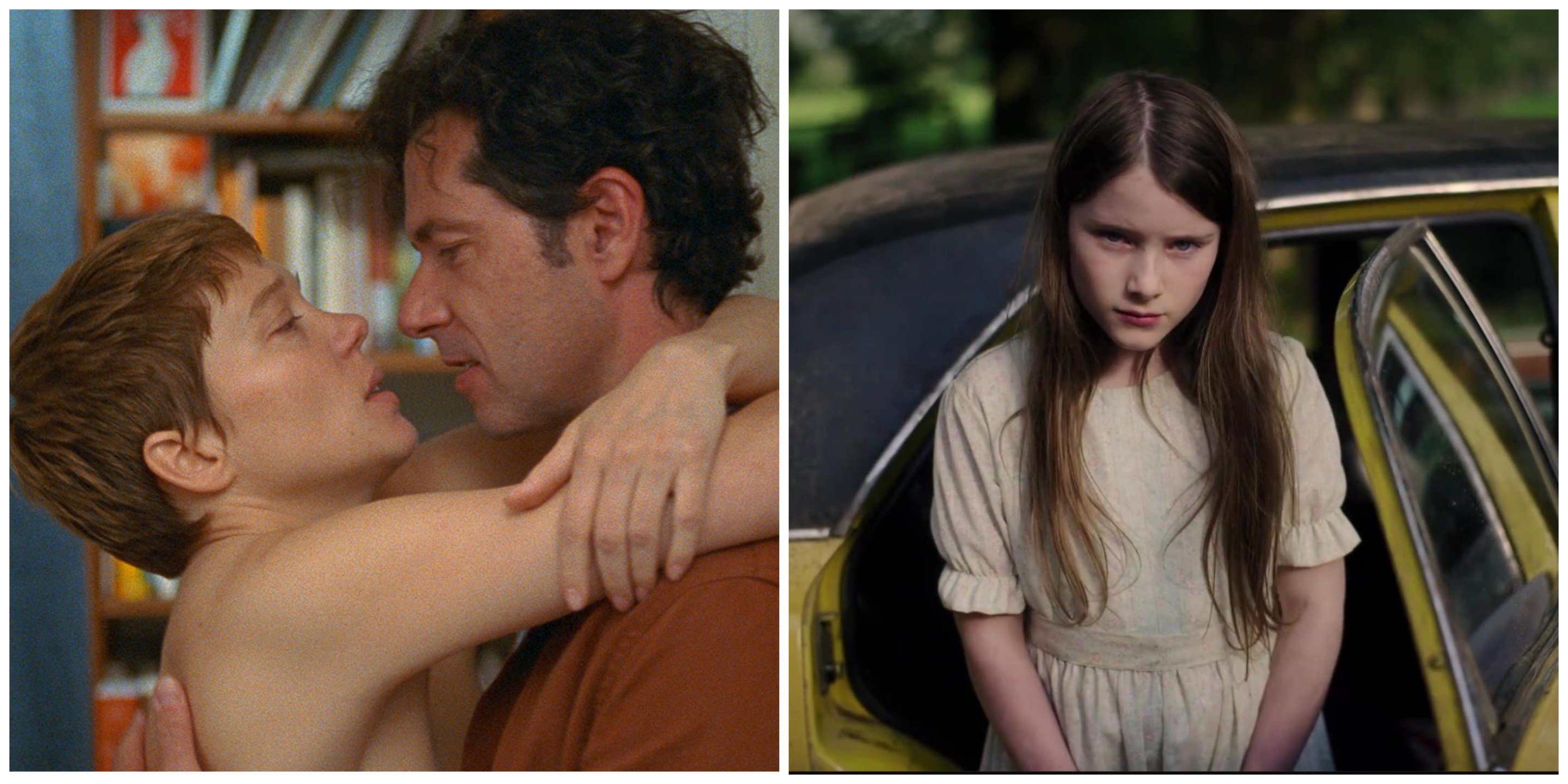Screen kissing is a form of acting. You can forget that and assume the people onscreen are just making out the way they know how rather than engaging in a form of characterization. But in director Mia Hansen-Løve’s One Fine Morning, we learn more about Sandra (Léa Seydoux) by how she kisses than by almost anything she says. Her lips advance with visible need, like someone who’s gone without physical affection for too long.
And she has. When Sandra confesses to her friend Clément (Melvil Poupaud) that she believes her sexual and romantic life has ended, we see why she imagines her life is too full with the needs of others to see to her own. Sandra is an incredibly patient woman caring for her father (Pascal Greggory) and his increasing dementia, while also raising an eight-year-old daughter alone and working as an interpreter (even her words aren’t her own). Of course, not long after she admits this to Clément, whose the married father of one of her daughter’s classmates, they’re in bed.
Hansen-Løve has a knack for snagging actors who can distill complexities of character from the most ordinary events: Seydoux joins the ranks of Isabelle Huppert in Things to Come, Vicky Krieps and Mia Wasikowska in Bergman Island, and Lola Créton (where has she gone?) in Goodbye First Love. As Sandra, Seydoux is at her least glamorous, with hair trimmed short and a backpack slung over both shoulders like a high schooler. Her frustrations are never directly expressed; they creep in through offhand comments like “I feel closer to my father with his books than with him,” or at unexpected moments, like when she suddenly breaks down when approached by one of her father’s students.
What Sandra is truly lacking comes through in one illustrative, complex scene. One afternoon, when Clément suggests they leave the house for a museum jaunt or a walk, rather than spending the day in bed, she lashes out at him, for several possible reasons. First off, she wants to fuck. Second she probably realizes that such an outing would be a fake version of the relationship they can’t have. (When they do leave, they eventually have to hide from people who know him.) But, more subtly, in her relationship with Clément, she seems to crave argument, an opportunity to spar with someone where so much of her life is about nurturing.
As always, there’s an underlying purpose to the relative shapelessness of the stories Hansen-Løve tells. Maybe no serious contemporary filmmaker cares as much about relationships between men and women, about that space between sexual attraction and love-if-that’s-what-you-want-to-call-it, and about how those relationships subtly modulate over time rather than peak and crash. (In this sense, she’s something like a more conversationally terse Rohmer.) You can trace the development of her aesthetic from Goodbye First Love (2011), in which two teens deal with the aftermath of their infatuation later in life, to Bergman Island (2021), for which Hansen-Løve traveled to the storied director’s home and the site of his most famous films, Fårö Island, only to wriggle away from his influence and tell her own story about ABBA singalongs and skinny-dipping.
As with Hansen-Løve’s other films, One Fine Morning traces the undramatic rhythms of an imagined life. That’s not to say a life without calamity or pain, but one where there’s no huge breakdown, there are just increments of pleasure and pain. And rather than coming to an end, One Fine Morning reaches a moment where it seems reasonable to stop following this story, because Sandra is no longer exactly the woman we met nearly two hours earlier.
If The Banshees of Inisherin was a bit too picturesque and full o’ blarney for your tastes, may I suggest The Quiet Girl as an antidote? Colm Bairéad’s mostly Gaelic-language feature is taciturn where the former is garrulous. It centers on the small private world of women rather than the drunken public life of men. And the rural Ireland of 1981 it introduces us to is as unspectacular (though still nicely photographed) as you could ask of a muddy countryside.
The quiet girl herself is nine-year-old Cáit (Catherine Clinch), who endures all the hard knocks of a Dickensian childhood with none of the alleviating comic touches. Her parents aren’t attentive enough to even mistreat her. Her da (Michael Patric) is a scruffy farmer and gambler who only seems to notice his wife (Kate Nic Chonaonaigh) long enough to knock her up again, and I’m not even sure we get a proper headcount of how many sisters and brothers crowd Cáit’s little life. When one of the father’s girlfriends asks which one Cáit is, he calls her “the wanderer” and we wonder if he even remembers her name.
One summer, with ma pregnant again, Cáit’s folks decide to unload her on a cousin who's a three-hour drive away. (She learns of this, characteristically, by overhearing a late night conversation during which her father says they can keep her forever for all he cares.) Cáit shows up on the doorstep of Eibhlín (Carrie Crowley) and Seán (Andrew Bennett), an older, childless middle-aged couple, in need of a bath and a hug. Her father warns them that his daughter will eat them into poverty, then hits the road so quickly he doesn’t even remember to leave Cáit’s suitcase behind.
It’s here that the simple story of The Quiet Girl is told: A neglected child learns to accept affection. Eibhlín (Carrie Crowley) takes to surrogate motherhood at once, bathing and brushing and otherwise doting on her new charge. Seán (Andrew Bennett) is more distant, barely acknowledging her presence. Maybe, we wonder, that’s just how the men in this world are. But slowly he warms up to Cáit, though not in a hackneyed “waif-wins-over-curmudgeon” storyline.
Along the way, there are unsurprising revelations (a busybody neighbor informs Cáit that Eibhlín and Seán once had a son, who died, which would explain the slightly ill-fitting boy’s clothes Eibhlín dresses her in) and foreshadowed incidents (be careful of the well, Eibhlín warns). But what powers The Quiet Girl dramatically isn't anything that happens so much as the sense that this is a reprieve from Cáit’s true life, that the cramped, loveless home of her parents awaits her at the end of the summer.
It's a hard story to tell with unadorned honesty, and Bairéad seems to fret that he might topple over into sentimentality and also that he might overcorrect by swerving into austerity. Tonally, The Quiet Girl can feel stuck between stations, a problem underlined by its ambiguous ending. The camera hangs back, giving us long shots of interactions, as though reluctant to pry into the characters’ lives any more than it must.
But Clinch carries the film, as she must. As Cáit, her response to every new situation is to wonder, silently, if she will be blamed for something. She embodies a child who’s mastered the art of being attentive without being noticed, of viewing the world through cautious eyes. Cinematographer Kate McCullough keeps us focused through those eyes as she takes in the mysterious world of adults. Even when Cáit is safe, the movie never quite accepts that, because Cáit never quite accepts it.
GRADES
One Fine Morning: A-
The Quiet Girl: B+
One Fine Morning and The Quiet Girl are now playing at the Main Cinema.






